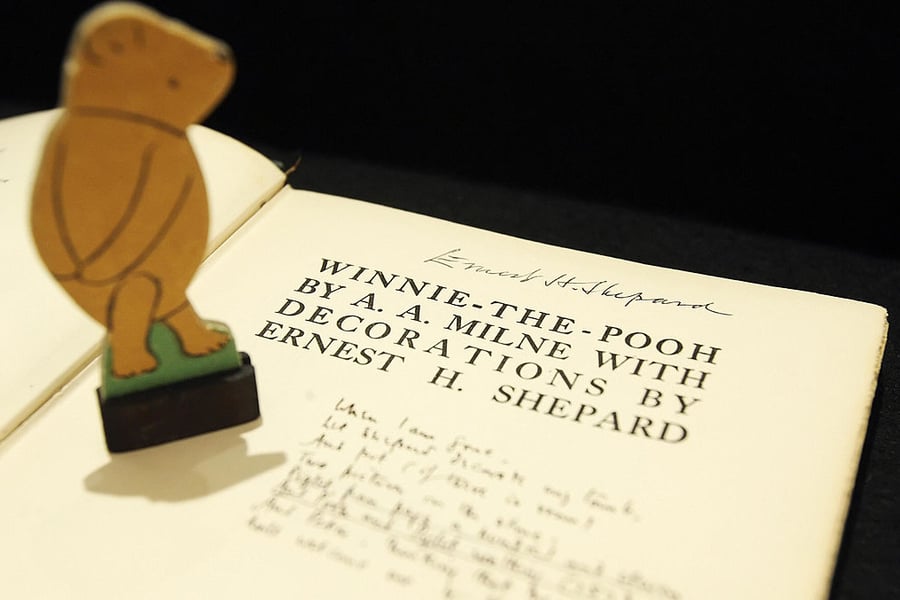A.A. Milne’s Winnie-the-Pooh, classic novels by Ernest Hemingway and Agatha Christie and hundreds of thousands of pre-1923 sound recordings are among the works that entered that public domain on New Year’s Day 2022.
Dorothy Parker’s first poetry collection Enough Rope, William Faulkner’s first novel Soldiers’ Pay, and books by Langston Hughes, Willa Cather, T.E. Lawrence and more also joined Hemingway’s The Sun Also Rises and Christie’s The Murder of Roger Ackroyd in the public domain, the Associated Press reported.
“When works go into the public domain, they can legally be shared, without permission or fee. That is something Winnie-the-Pooh would appreciate. Community theaters can screen the films. Youth orchestras can perform the music publicly, without paying licensing fees,” Jennifer Jenkins, Director of Duke’s Center for the Study of the Public Domain, wrote of the 2022 bounty on the Public Domain Day site.
“This helps enable access to cultural materials that might otherwise be lost to history. 1926 was a long time ago. The vast majority of works from 1926 are out of circulation. When they enter the public domain in 2022, anyone can rescue them from obscurity and make them available, where we can all discover, enjoy, and breathe new life into them,” noting how modern-day Shakespeare adaptations wouldn’t be possible if not for the public domain.
Additionally, for the first time thanks to the passage of the Music Modernization Act in 2018, over 400,000 sound recordings from the advent of sound recording technology through 1922 will also enter the public domain. This includes works by Mamie Smith, Al Jolson, Fanny Brice, Ethel Waters and hundreds more.
“On January 1 2022, the gates will open for all of the recordings that have been waiting in the wings,” Jenkins wrote. “Decades of recordings made from the advent of sound recording technology through the end of 1922—estimated at some 400,000 works—will be open for legal reuse.”
However, the biggest work to enter the public domain Jan. 1 is Milne’s first Winnie-the-Pooh story, published in 1926 and, nearly a century later, an estimated billion-dollar franchise under Disney’s stewardship. USA Today reported that while Disney’s own creations are trademarked under the “The Mickey Mouse Protection Act,” since Pooh and friends was the invention of Milne, the company could lose its exclusivity on the character.
Love Music?
Get your daily dose of everything happening in Australian/New Zealand music and globally.
With Winnie-the-Pooh in the public domain, others would now be able to adapt the character and his friends — but not Tigger, who Milne created in 1928 and still under Disney rule for a few more years — in new works. However, Disney owns the copyright on their version of the Winnie-the-Pooh cartoons, so any adaptations born out of the book entering the public domain can not closely resemble those in the Magic Kingdom.
From Rolling Stone US



































